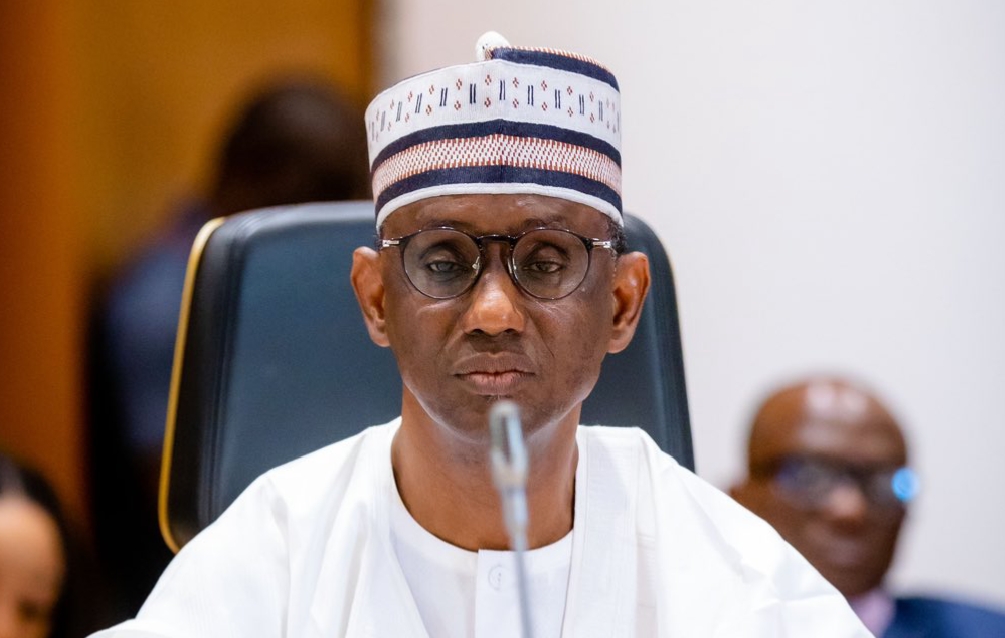NSA Says FG investigating Gulf Of Guinea As Hotbed Of Arms Smuggling Route Into Nigeria
The National Security Adviser (NSA), Mallam Nuhu Ribadu, has disclosed that the Federal Government is currently investigating the Gulf of Guinea (GoG) as a major route for arms trafficking into Nigeria.
Ribadu made this statement at a two-day seminar titled “Climate Change and the Changing Dynamics of Arms Proliferation and Insecurity in the Gulf of Guinea: Nigeria in Perspective,” held on Tuesday in Abuja.
The seminar was organised by the National Centre for the Control of Small Arms and Light Weapons (NCCSALW) in collaboration with the Global Network for Human Development.
Ribadu was represented by Ibrahim Babani, the Director of External Affairs at the Office of the National Security Adviser (ONSA).
He highlighted the GoG’s vast natural resources and underground mineral deposits, which include an estimated 24 billion barrels of crude oil reserves that contribute roughly five million barrels daily to the global crude market.
According to him, the region comprises 16 countries, including Nigeria, and stretches approximately 6,000 kilometers of unbroken coastline.
He remarked, “It is the maritime gateway between Africa and the rest of the world.” However, Ribadu noted that the GoG’s lucrative natural resources and economic activities have attracted “strange bedfellows and men of the underworld with ulterior motives pursuing nefarious activities in the GoG.”
He emphasised the involvement of organised crime syndicates in various crimes, including drug trafficking, human trafficking, oil theft, kidnapping and hostage-taking of ship crews, piracy, and smuggling of contraband goods.
He stated, “In this category lies the smuggling of Small Arms and Light Weapons by international crime syndicates.”
Ribadu acknowledged previous reports on the proliferation of small arms and light weapons (SALW) through the maritime sector but expressed the government’s intent to further investigate the GoG as a primary route for arms trafficking.
He stressed the need for a deeper examination of the connection between climate change, armed violence, and the proliferation of arms within the GoG countries.
“SALWs had long been identified as both a root cause and enabler of insecurity globally,” he added.
He pointed out the challenges posed by the availability of SALW in the hands of non-state actors and international crime syndicates, which have left nations struggling to find effective solutions.
The NSA revealed that all 14 reported kidnappings of crew members and 75 percent of crew members held hostage in 2023 occurred in the GoG.
He stated, “Additionally, two crew members were injured, reinforcing the GoG’s reputation as treacherous waters for seafarers.”
He noted that this maritime threat has evolved, stating, “According to the same report, this maritime threat has evolved from the looting and hijacking of oil cargos to the kidnapping of seafarers, bringing the root cause of the problem sharply into focus.”
Retired DIG Johnson Kokumo, the Director-General of NCCSALW, spoke about the significant impact of climate change as a contributor to displacement and instability, particularly in the Gulf of Guinea.
He explained that climate change is a driver of conflict in vulnerable regions worldwide, with criminal networks taking advantage of the situation.
Kokumo emphasised, “This instability has in turn fuelled the demand for arms, contributing to the rise in the proliferation of small arms and light weapons.”
The two-day seminar aimed to explore these complex linkages, with Kokumo stating, “We must reflect on how the changing climate exacerbates insecurity, weakens governance, and allows the illegal arms trade to thrive.”
He reiterated the need for stronger national and regional frameworks for arms control, environmental resilience, and conflict mitigation, assuring participants of the Centre’s commitment to curbing the SALW menace.
Guest lecturer Dr Dickson Orji, President of the GOLHD Centre, pointed out that a significant amount of illicit arms in Nigeria are transported via maritime routes.
He urged the government to enhance its focus on the maritime arena in the fight against the proliferation of illicit small arms and light weapons.




Comments are closed.